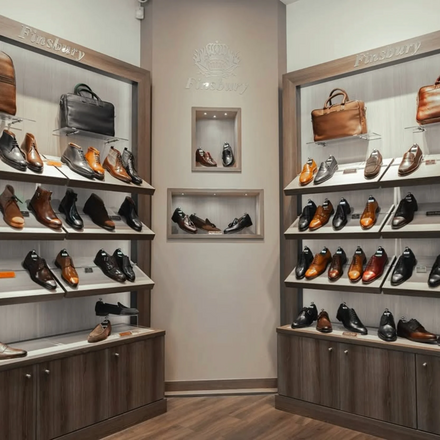Senior care franchises

Europe’s aging population is driving demand for senior care services. Discover how leading franchises offer business opportunities in this rapidly growing sector.
Europe is undergoing a significant demographic transformation, with a rapidly aging population. According to Eurostat, nearly 30% of Europeans will be over 65 by 2050. As public healthcare systems struggle to meet the increasing demand for elderly care, private senior care franchises are stepping in to fill the gap. These franchises offer a variety of services, from home care assistance to specialized healthcare facilities, making them an attractive solution for families seeking quality care for their elderly relatives. This growing market presents an exciting opportunity for entrepreneurs who want to combine business with a meaningful social contribution.
Leaders in the European market
One of the biggest players in the European market is Home Instead Senior Care, founded in 1994, with over 1,200 locations worldwide. This franchise specializes in non-medical care, offering services like companionship, help with daily tasks, and dementia support. To join Home Instead, prospective franchisees need an initial investment of around €60,000 to €80,000. In addition, franchisees pay a royalty fee of about 5% of their revenue. In return, the franchise offers comprehensive training, business support, and the strength of a globally recognized brand.
Another growing brand in Europe is Visiting Angels, which originated in the U.S. but has expanded into the UK, Germany, and Italy. This franchise focuses on personalized in-home care services, providing elderly clients with assistance tailored to their specific needs. The cost of joining Visiting Angels ranges between €30,000 and €100,000, depending on the market and country. The brand charges a royalty fee of 3-5% on revenues. Franchisees benefit from a detailed startup process, which includes initial training, business planning, and ongoing support.
Caremark, a UK-based senior care franchise, has a solid foothold in several European countries. It provides both in-home care and healthcare services for seniors, catering to clients with specific health conditions such as Alzheimer's or limited mobility. Franchisees need to invest around €45,000, with additional working capital of up to €120,000. As with other franchises, Caremark charges a royalty fee, which is set at 4% of the franchisee's turnover. In return, franchisees receive a complete business setup package, regulatory compliance support, and extensive staff training.
What it takes to join the senior care franchise industry?
Joining a senior care franchise involves several key components. First and foremost, there’s the financial commitment. Initial investments for these franchises range between €60,000 to €150,000, which includes franchise fees, business setup costs, and working capital. Franchisees also need to account for ongoing costs such as royalty fees, which typically range from 3-6% of revenue, and marketing fees.
While a healthcare background is not always required, successful franchisees often have experience in management, leadership, and a strong desire to make a difference in the lives of seniors. Franchise brands provide extensive training and support, but the franchisee needs to manage a team of caregivers, ensuring high standards of care and regulatory compliance. This last point is crucial since healthcare regulations vary by country in Europe, and senior care services are tightly monitored. Franchisees need to ensure that they and their staff meet local legal requirements, which often include certifications and special licenses for operating in the healthcare sector. Most senior care franchises, however, offer guidance to help navigate these complex regulations.
Opportunities and challenges
The market for senior care services in Europe is expected to grow steadily, driven by longer life expectancy, shrinking family sizes, and dual-income households that often cannot provide full-time care for elderly relatives. The increasing need for both non-medical and medical services offers a reliable source of recurring revenue, as elderly clients typically require long-term care. This makes senior care franchises particularly attractive from a business perspective. Furthermore, several European governments provide subsidies or tax incentives for companies that offer elder care services, enhancing the profitability of these ventures.
However, the sector is not without its challenges. In addition to navigating strict regulatory environments, franchisees must build trust with families entrusting them with their elderly relatives' care. Delivering consistent, high-quality care is critical to long-term success, which requires significant investment in staff training and retention.
The future of senior care franchising
The future for senior care franchises in Europe looks promising. As the elderly population grows, so does the need for innovative care solutions. Many franchises are already incorporating technological advancements, such as telemedicine, remote monitoring, and AI-driven care management systems, into their business models. These technologies allow for more efficient and personalized care, which appeals to both clients and their families.
In addition to technological integration, the increasing focus on wellness and holistic care for seniors opens further opportunities for franchisees. Brands that provide not only physical but also emotional and mental support for seniors will likely see continued success in the coming decades.
As Europe’s population continues to age, senior care franchises are becoming more critical than ever. For entrepreneurs, the senior care industry offers both a lucrative business opportunity and the chance to make a meaningful social impact. With established brands like Home Instead, Visiting Angels, and Caremark leading the way, franchisees can enter this growing market with the backing of proven business models and extensive support. By offering essential services like home care and specialized healthcare, these franchises are poised to play a crucial role in addressing the needs of Europe’s elderly population.
Featured franchises
No featured franchises
Other concepts from sector consumer services
Breaking news
Show all
LA BARBE DE PAPA
Step into a premium grooming network built for growth, offering a structured franchise model with clear financials and strong operational support.

Pandora Greenbox franchise
Pandora Greenbox offers a scalable fast-casual concept combining healthy cuisine, smart design and strong unit economics across Europe.

Expanding premium footwear through franchising
A French footwear brand expanding through franchising, offering structured entry into premium shoe retail with established operational standards.

Franchise model in sustainable water solutions
An international franchise network focusing on water generation and distribution technologies designed for commercial and residential markets.



